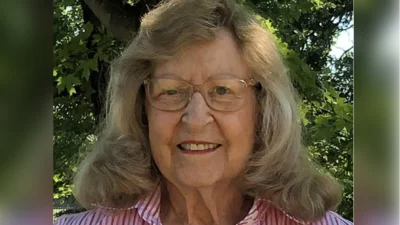An Illinois Appellate Court decision has confirmed that home rule units cannot pass ordinances to weaken their duties under state open records laws, according to the Better Government Association (BGA), which brought the case.
The case stems from a Freedom of Information Act (FOIA) request submitted by the BGA to the Village of Rosemont. The village partially denied the request, citing an ordinance it had passed a day earlier that exempted the village from disclosing some of the information requested.
The BGA won a decision in the Circuit Court of Cook County, which the Appellate Court has now upheld, on the grounds that FOIA precludes local government ordinances from limiting their disclosure obligations.
.jpg)
Garth Brooks
| By Steve Jurvetson - edited by CPacker - This file has been extracted from another file: Garth Brooks at We Are One.jpgoriginally posted to Flickr as Garth Brooks, CC BY 2.0, https://commons.wikimedia.org/w/index.php?curid=5824644
“Home rule units have the power to expand the duty to disclose, but they lack authority to exempt from disclosure documents and information for which FOIA mandates disclosure,” Justice Scott Neville Jr., who wrote the court’s opinion for the case, said, according to the BGA.
Justices Michael Hyman and Mary Anne Mason concurred.
According to the opinion, the controversy at the center of the case concerned fees paid by the village to a longtime promoter of country music star Garth Brooks to get Brooks to play a series of shows at the Allstate Arena, which Rosemont owns. A Chicago Tribune reporter first requested the contracts related to the concerts, which the village turned over with parts redacted.
Following the Tribune’s request, the village adopted an ordinance that barred village officials from disclosing information about money paid by producers to use Allstate Arena and the village’s Donald E. Stephens Convention Center, as well as incentives paid to producers to induce them to use the venues.
The following day, the BGA requested the contracts for all events held at the village’s venues. While the case with the Tribune was eventually decided via a binding opinion from the state attorney general, revealing that the village paid $1 million to secure the concerts, the BGA case went through the court system.
Rosemont is one of Illinois' 214 home rule units -- a designation given to communities with populations over 25,000 or those that vote for it through a referendum. Home rule status allows communities to determine their own regulations for public health issues, safety and welfare.
Rosemont claimed that its ordinance was permitted under FOIA as the act does not specifically declare the intent that only state statutes should place restrictions on disclosures. In his opinion, Neville pointed to a section of the law that states: “This Act shall be the exclusive State statute on freedom of information, except to the extent that other State statutes might create additional restrictions on disclosure of information or other laws in Illinois might create additional obligations for disclosure of information to the public.”
The BGA said Neville’s opinion makes it clear that the court sees this as a straightforward declaration and that the village’s interpretation would leave the state’s FOIA completely vulnerable to the discretion of any home rule unit, which defeats the purpose of the act.
“We find that in this provision, the legislature expressly stated its intent that only State statutes may create additional restrictions disclosure of information, and other laws in Illinois, including ordinances of home rule units, may create additional obligations for disclosure but cannot create exemptions from disclosure,” Neville in the majority opinion.






 Alerts Sign-up
Alerts Sign-up